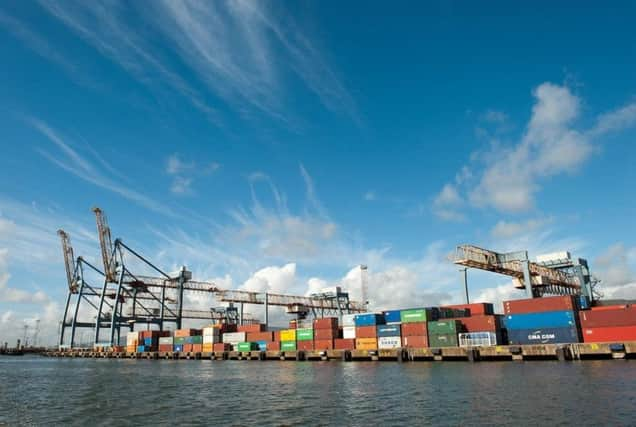SMEs speak out on Brexit export fears and calls for action


Releasing what it describes as the first substantive business research published since the Prime Minister’s Brexit speech last week, FSB says the findings highloight the need for local politicians to fight to secure the greatest possible access to the EU single market and address issues around the border.
“Today’s research highlights that one in three FSB members trade overseas,” said Northern Ireland policy chair Wilfred Mitchell.
Advertisement
Hide AdAdvertisement
Hide Ad“Small business exports have been on the rise since the referendum, with the lower value of the pound making UK goods and services more competitive.”
Any new, post Brexit, agreement must maintain the current ease of trade with the EU and not lead to additional administrative or financial burdens, he said.
“In order to boost our competitive stance in the global market, there needs to be an enhancement of specific support for small exporters to reach new customers and to negotiate ambitious trade deals with large and emerging markets; this should be the priority of the Northern Ireland Executive.”
The research shows that one in three (32%) small businesses are involved in overseas trade as either an exporter, importer or both.
Advertisement
Hide AdAdvertisement
Hide AdThe vast majority trade currently trade within the single market, 92% of them exporting and 85% importing.
As a result of Brexit, one-third (29%) of exporters expect levels to decline, while one in five (20%) expect it to increase.
The contrast is greater among current importers, where a third (31%) expect to see a decrease compared to seven per cent expecting an increase.
The research also reveals that one in five (21%) firms employ non-UK EU citizens, with the majority of these already residing in the UK with the right to work here.
Advertisement
Hide AdAdvertisement
Hide AdIn addition, almost half (47%) of those predominantly rely on mid-skilled workers, such as mechanics or care workers, while a fifth (21%) mainly rely on lower-skilled labour such as farm workers, integral to the Northern Ireland’s large agri-business base.
“FSB research clearly shows the importance small businesses place on being able to access the skills and labour they require,” said Mr Mitchell.
“Mid-level skills are vital for small firms, and businesses are calling for the right to remain for those EU citizens in the workforce here.
“The design of any future immigration system must ensure demand can be met, twinned with a supply-side focus on improving UK education and skills.
“Equally, continuing to attract the very best high-skilled international talent is essential for small businesses operating in sectors such as digital and tech,” he added.